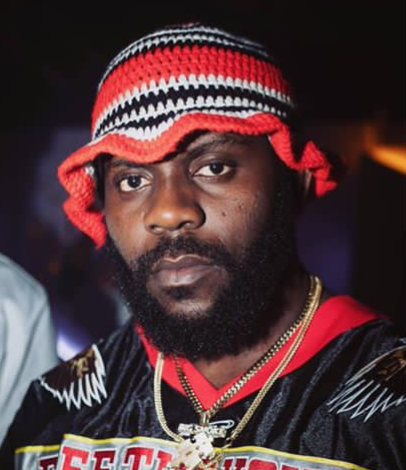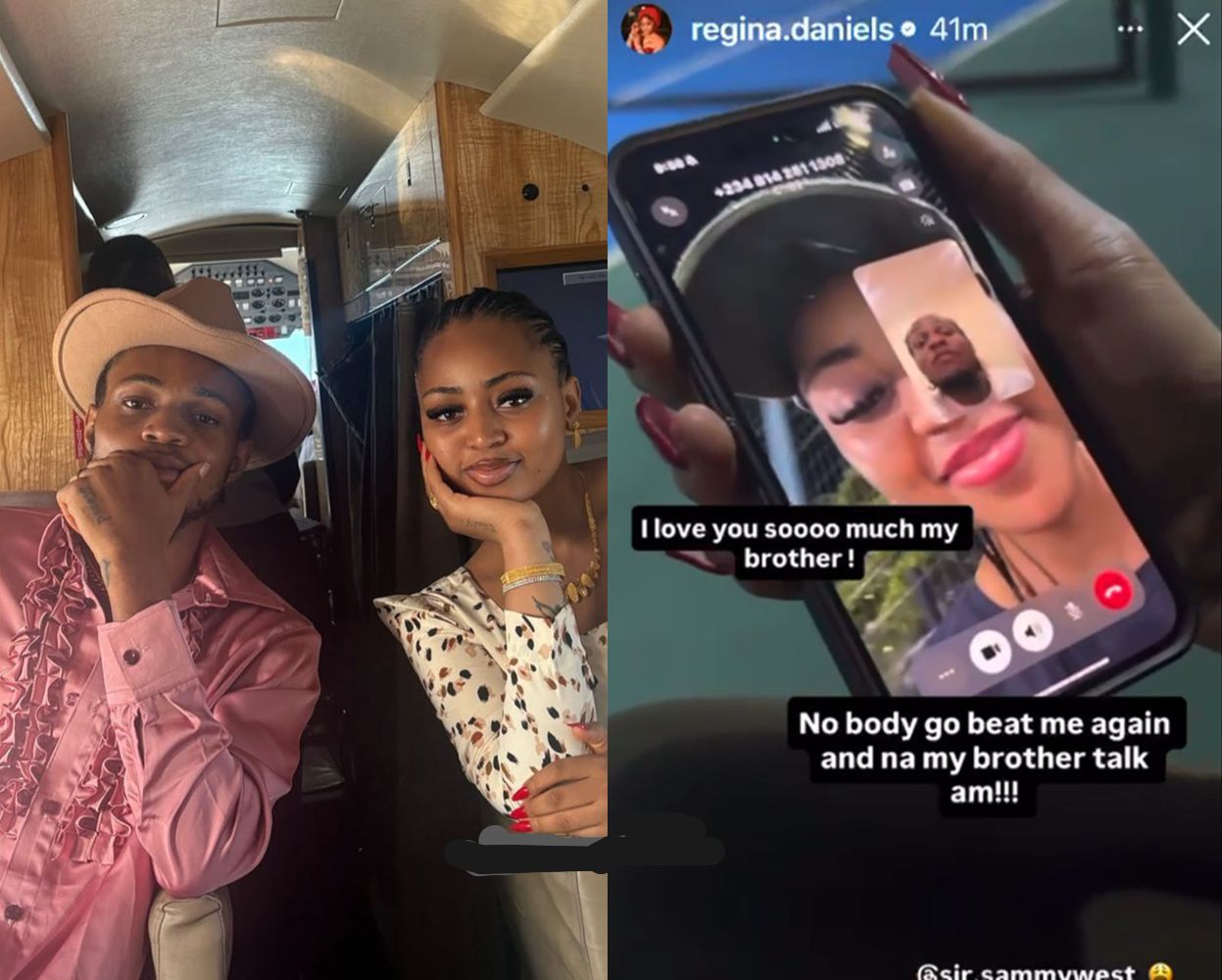
Machine Pass Machine: Odumodublvck Reacts to Mr Eazi’s Shocking ₦19m Uncle Loan Revelation

The Nigerian music industry is never short of surprises, and sometimes the shock doesn’t come from a new single, an electrifying performance, or a controversial beef, but from the raw, unfiltered stories of the artists themselves. Social media has been buzzing after Afropop star Mr Eazi revealed that at the tender age of 19, his uncle entrusted him with a staggering sum of ₦19 million to invest in a diesel business, a venture that sadly collapsed within just three months. While many fans were still wrapping their heads around the sheer weight of that revelation, rapper Odumodublvck, never one to shy away from witty takes and blunt reactions, jumped into the conversation with a comment that perfectly captured the mood of the streets, drawing laughter, shock, and admiration in equal measure.
Mr Eazi’s revelation itself was one that resonated deeply with young Nigerians who often dream of opportunities that could change their lives but rarely see them materialize. The singer, who has successfully built a career mixing music, entrepreneurship, and investments across Africa, decided to peel back the layers of his journey by recalling how his uncle took a huge risk on him at an age when most Nigerian youths are still battling with university admissions, strikes, and the harsh realities of an unstable economy. According to Eazi, he had convinced his uncle to lend him the colossal amount of ₦19 million with the hope of breaking into the oil and gas sector. For many, the figure alone sounded like a fantasy because access to that kind of money remains a far-fetched dream for most young Nigerians. But as fate would have it, the dream was short-lived, as the business crumbled within three months, leaving him with nothing but experience, regret, and the seeds of resilience that would later blossom into his global success.
As the news began to spread like wildfire across X (formerly Twitter) and other social media platforms, the reactions were swift and sharp. Some marveled at the sheer luck of having a supportive uncle with such faith, others lamented how such opportunities are not common in their families, while a large section of users found humor in imagining themselves receiving such a fortune at 19. It was within this flurry of emotions that Odumodublvck, the self-styled “Big Kala” and leader of the “Okporoko” sound, dropped a comment that instantly became a trending highlight. In his post, he wrote in his typical raw, street-flavored style: “MR EAZI GET UNCLE WEY BORROW AM 19M AT 19. AT 19 NA ‘YOU HAVE GROWN O’ NA WETIN MY UNCLES DEY GIMME CHOP. MACHINE PASS MACHINE BUT ALL NA MACHINE.”
This reaction was not only hilarious but also painfully relatable for countless Nigerians who saw themselves in Odumodublvck’s words. His comment underlined the generational gap in opportunity and resources while cleverly using humor to soften the blow. For many, the line “at 19 na ‘you have grown o’ na wetin my uncles dey gimme chop” hit too close to home. In a society where most young adults are often left to figure out their path with little to no financial support, the idea of an uncle giving out ₦19 million feels like an alternate reality. The phrase “machine pass machine” also stuck, a quintessential Odumodublvck punchline that turned the entire conversation into a cultural moment.
Fans immediately flooded the timeline with memes, jokes, and even personal stories, further fueling the conversation. Some joked about how their own uncles barely remember their birthdays, while others humorously compared what ₦19 million could do for them today, let alone at 19. Odumodublvck’s post became the comic relief Nigerians needed, but it also carried undertones of social commentary. The rapper’s words subtly highlighted the uneven playing field that exists in the Nigerian hustle, where some are launched into life with a financial cushion while others are left to claw their way up with grit alone.
Interestingly, many people praised Mr Eazi’s uncle, not just for giving him the money, but for demonstrating a rare kind of trust in a 19-year-old. In a society where young people are often dismissed as irresponsible or inexperienced, that act of belief stood out as extraordinary. Even though the business collapsed, many argued that the real investment was in Eazi himself. Today, the same man who lost millions in his teens has gone on to build music platforms, fund creative projects across Africa, and establish himself as one of the continent’s biggest musical exports. For some, this proved that failure at a young age does not define one’s destiny but can instead serve as the foundation for greater success.
Odumodublvck’s reaction also brought the conversation back to the gritty realities of the average Nigerian youth. While Eazi’s story may be inspiring, the fact remains that most young people in Nigeria do not have access to uncles with ₦19 million to spare. Instead, many are left to chase opportunities in an unforgiving economy, surviving on the barest minimum. In this sense, Odumodublvck became the voice of the people, grounding the conversation in the shared reality of his fans and followers. His style of engagement, blending wit, street wisdom, and relatability, once again showed why he has become a cult favorite in the Nigerian rap scene.
The buzz did not stop there. Comment sections across social platforms were filled with debates about privilege, family dynamics, and the importance of financial education. Some argued that Mr Eazi’s experience was a prime example of why financial literacy should be taught at a young age, while others stressed that the key takeaway was perseverance and the courage to keep going even after failing spectacularly. There were also those who, inspired by his honesty, began sharing their own stories of failed ventures, reminding everyone that behind every successful entrepreneur lies a trail of missteps, experiments, and lessons.
For Odumodublvck, this moment is another testament to his ability to stay culturally relevant, not just through music but through sharp social commentary. By simply reacting with humor, he turned a serious revelation into a moment of collective reflection and laughter. His words, “machine pass machine but all na machine,” will likely linger in the lexicon of Nigerian pop culture for a while, much like his other viral phrases.
At its core, the exchange between Mr Eazi’s confession and Odumodublvck’s witty response captures the duality of the Nigerian youth experience: the rare stories of access and privilege contrasted with the harsh realities of scarcity and survival. It is a reminder that while not everyone starts the race at the same point, resilience, creativity, and persistence remain the universal machines that keep the hustle alive. In the end, Mr Eazi’s story of loss turned into success and Odumodublvck’s humorous yet profound reaction both stand as reflections of the different ways Nigerians process opportunity, failure, and the dream of a better tomorrow.
One thing is certain: the conversation has not only sparked laughter but also stirred deeper thoughts about privilege, perseverance, and the power of perspective. Whether you’re the lucky one with an uncle who can drop millions at a whim, or the hustler whose uncles can only offer food and prayers, the Nigerian spirit of resilience keeps moving. And as Odumodublvck so perfectly put it, “machine pass machine, but all na machine.”


